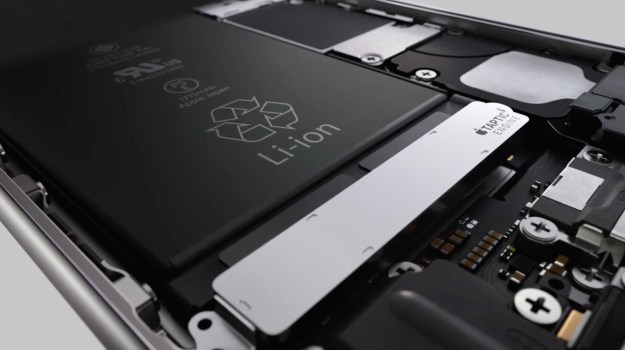It was bound to happen. The first lawsuit has been filed over Apple’s slowing of older iPhone models, a move the company says is to improve “overall performance and prolonging the life” of the older devices.

Los Angeles residents Stefan Bogdanovich and Dakota Speas, represented by Wilshire Law Firm, on Thursday filed a lawsuit with U.S. District Court for the Central District of California, accusing the Cupertino firm of purposely slowing older iPhones when new models are released.
A new class action suit has been filed by Stefan Bogdanovich, an L.A. man who, like millions of other people, uses an iPhone … but not an iPhone 8. He claims Apple’s tactic of slowing down older iPhone models causes users to suffer — specifically those with the 7 or 7s — and take a hit to their wallets.
Bogdanovich claims Apple’s decision to slow the operation of older phones to save battery life was never requested or agreed upon … and it lowers the value of their phones. He also believes — like many other users — that it’s just a ploy by Apple to get folks to buy the newest iPhone.
He wants Apple to stop slowing down older phones and get some payback for damages.
The lawsuit claims:
Defendant breached the implied contracts it made with Plaintiffs and Class Members by purposefully slowing down older iPhone models when new models come out and by failing to properly disclose that at the time of that the parties entered into an agreement.
The plaintiffs say they have owned several older iPhone models and have noticed “older iPhone models slows (sic) down when new models come out.”
The pair are seeking both California and Nationwide class action certification, covering anyone who owned iPhone models older than the iPhone 8.
Apple on Wednesday confirmed older iPhones – including iPhone 6, iPhone 6s and iPhone SE models – are being slowed on purpose. The Cupertino firm says is temporarily slows processes on devices with worn batteries to “smooth out the instantaneous peaks” in order to prevent the shutdown of the device.
Our goal is to deliver the best experience for customers, which includes overall performance and prolonging the life of their devices. Lithium-ion batteries become less capable of supplying peak current demands when in cold conditions, have a low battery charge or as they age over time, which can result in the device unexpectedly shutting down to protect its electronic components.
Last year we released a feature for iPhone 6, iPhone 6s and iPhone SE to smooth out the instantaneous peaks only when needed to prevent the device from unexpectedly shutting down during these conditions. We’ve now extended that feature to iPhone 7 with iOS 11.2, and plan to add support for other products in the future.
The feature was enabled for devices as of the iOS 10.2.1 update, which solved the unexpected shutdown issues, said to be related to battery voltage output.
As we prepared this article, we found a second lawsuit has been filed in a Chicago courtroom by a group of Chicago residents, alleging harm by the company’s actions.


